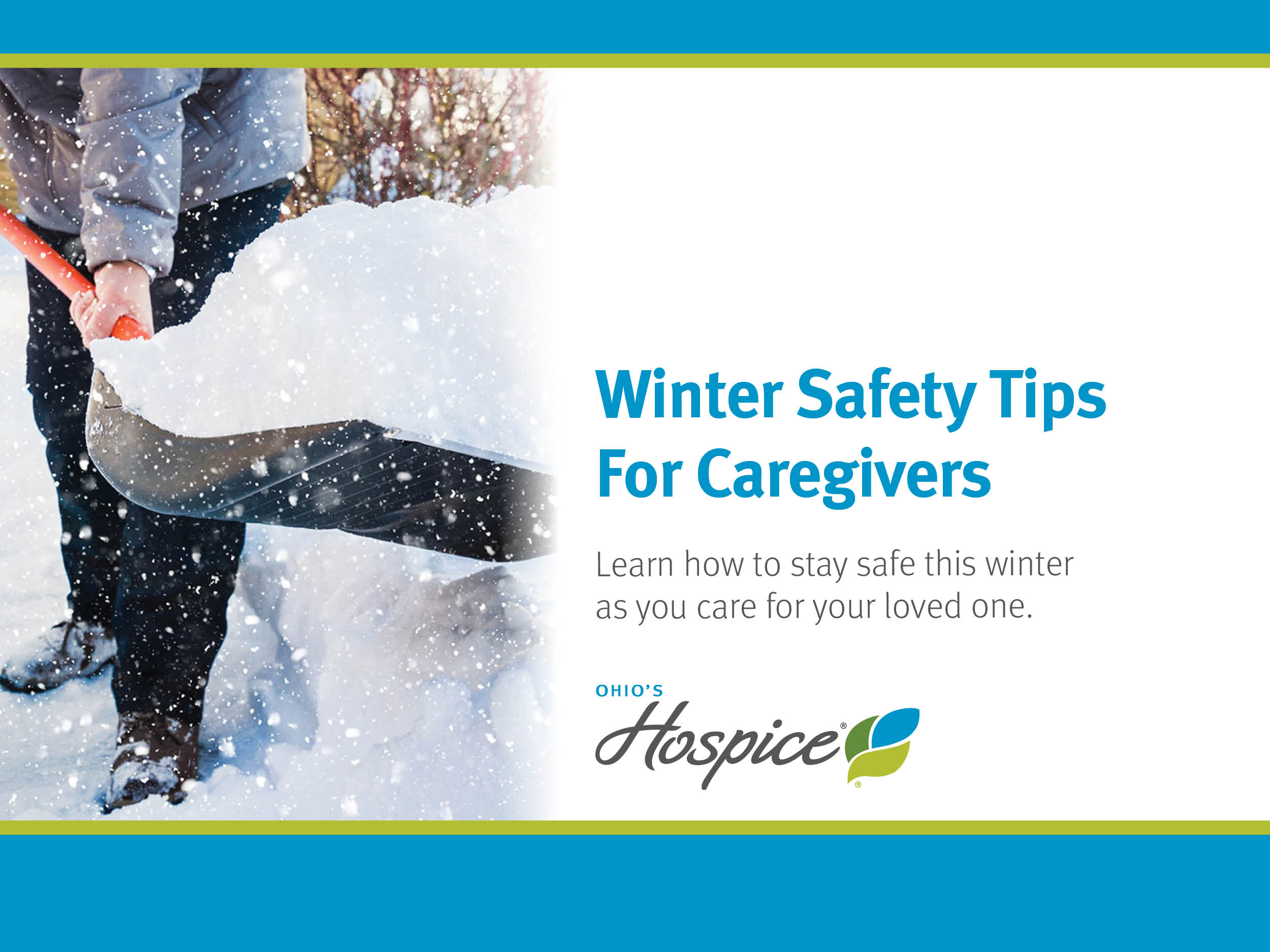Navigate the Winter Safely With These Tips
The winter season can bring health and safety challenges for caregivers and their loved ones. For caregivers, the safety of their loved ones is a top priority, especially during cold temperatures, snow and ice. These health and safety tips From the National Safety Council and Centers for Disease Control and Prevention (CDC) will help to keep you and your loved ones safe this winter.

Mental And Physical Health
- Ask for help when you need it!
- Check in with friends and family often. A short phone or video call can increase connections while travel is difficult or dangerous.
- Exercise and eat nutritious, healthy meals to keep your immune system running effectively to fight illness. Eat foods high in vitamin D or take a supplement. Be sure to consult with your physician before changing your diet or taking any supplements.
- Avoid injury by dressing warmly and taking your time.
Prepare for Cold Temperatures
- Dress in layers of appropriate outdoor clothing, including gloves, hats, scarves and boots when going outside. Footwear with good traction is important.
- Waterproof your home by insulating water lines in exterior walls, caulking or weather-stripping doors and windows, and installing storm or thermal-pane windows.
- Have your chimney inspected if you plan to use a fireplace or wood stove for heating or cooking.
- If you or your loved one are over 65 years old, place an easy-to-read thermometer in an indoor location to monitor the temperature inside your home. Our ability to feel temperature changes decreases with age, and older adults are more susceptible to health problems caused by cold.
Be Prepared
- Salt, sand and kitty litter can increase traction on sidewalks and driveways. Clear sidewalks and driveways and avoid icy or snow-covered paths where slipping is likely.
- Store extra batteries and candles in your home in case of winter storms.
- Install a smoke detector and battery-operated carbon monoxide detector. Test both monthly and replace the batteries twice a year.
- Keep your vehicle’s gas tank above half a tank, use winter formula windshield wiper fluid, and prepare an emergency kit with blankets, flares, a flashlight, and a first aid kit.
- Before traveling, check current and forecasted weather conditions. Avoid non-essential travel while National Weather Service advisories are under effect. If you must travel, inform a friend or loved one of your routes and expected time of arrival.
Most importantly, if you do not feel well, stay home and care for yourself before tending to your loved one to limit the spread of illness to your loved one or other caregivers.
Winter can pose added challenges to caregiving, but taking care of yourself and being prepared will keep you healthy and safe.

